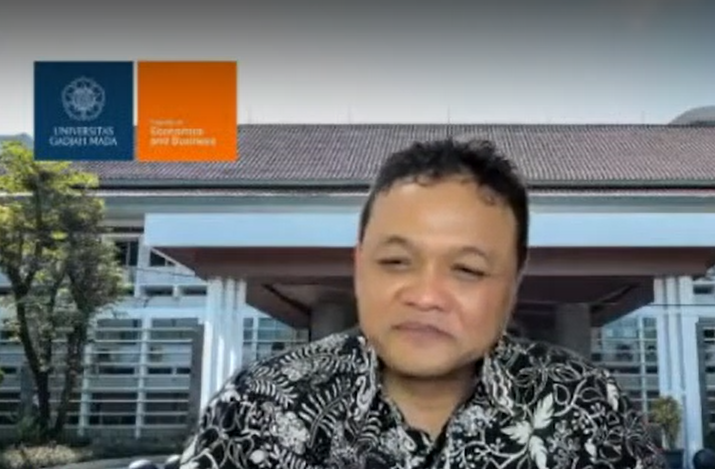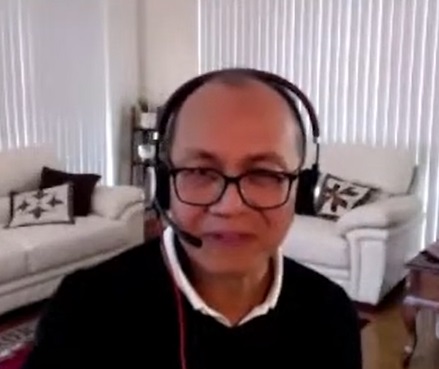FKP hosted by Faculty of Economics and Business Universitas Gadjah Mada (FEB UGM) and ANU Indonesia Project. Speaker Dr Rimawan Pradiptyo (FEB UGM); discussants Dr Arianto Patunru (ANU Indonesia Project) and Dr Vivi Alatas (Asakreativita)
Corruption, defined as the use of public position to obtain private gain, comprises such activities as embezzlement, extortion and bribery, imposing high social costs compared to other types of criminal activities and is therefore should be prevented. Some form of punishment is seen as a mechanism to deter corruption, however there is still debate on the effectiveness of current punitive measures on deterring corruption and this is still an under-researched problem including in Indonesia.
In the 6th Mubyarto Public Policy Forum, Dr Rimawan Pradiptyo, a lecturer at FEB UGM and one of very few economists in Indonesia specializing in the study of corruption, presented his research on estimating corruption in the private, corporate sector. Corruption in the private sector is relatively less regulated compared to in the public sector even though there is evidence that the size of corruption in the private sector is large. The research is conducted with Putu Sanjiwacika Wibisana and Putu Arya Wigit, both of FEB UGM. Using an experimental design, the study seeks to 1) estimate the rate of corruption when it is not regulated, 2) test the impacts of fines on corruption and 3) test whether the punitive damage approach is effective in deterring corruption. The experiment was carried out in the form of a 2-stage public goods game/simulation involving 378 players who were recruited from amongst students at Universitas Gadjah Mada. The study found that increasing intensity of punishment tend to reduce both the likelihood of the incidence and the intensity of corruption, which contradicts a previous well-known study (Gneezy and Rustichini, 2004) which found that mediocre punishment actually promotes participants’ corrupt behaviour.
In his discussion of the research, Dr Arianto Patunru raised the work of the late Professor Mubyarto on corruption where he highlighted that both motivation and opportunity need to be present for corruption to occur, and this economic narrative can be strengthened in the write up of the study. Meanwhile, in her discussion Dr Vivi Alatas focused on the incentive structure of the game and provided suggestions for clarifying and articulating the trade-off faced by game participants, especially those randomly chosen to have the opportunity to be corrupt during the game.
The presentation received many comments and questions, and some issues raised include the implication of having students (whose opportunity cost of time is low compared to the general population) as participants, and whether the simulation can be expanded to other members of the population.
Ringkasan acara dalam Bahasa Indonesia dapat dibaca di sini: https://feb.ugm.ac.id/id/berita/3901-hukuman-yang-lebih-berat-dapat-menggentarkan-tindak-korupsi
About the Mubyarto Public Policy Forum. Since 2017, the Faculty of Economics and Business Universitas Gadjah Mada and the ANU Indonesia Project together hold the annual public policy forum series titled the Mubyarto Public Policy Forum. The annual public policy forum series is in honour of Professor Mubyarto, a prominent economist at Gadjah Mada University, who was one of Indonesia’s most influential intellectuals on the issue of rural development between the 1960s and 1990s. The goal of this forum is to stimulate debates on key development policy issues in Indonesia, particularly on agriculture, rural development and social and economic justice.








